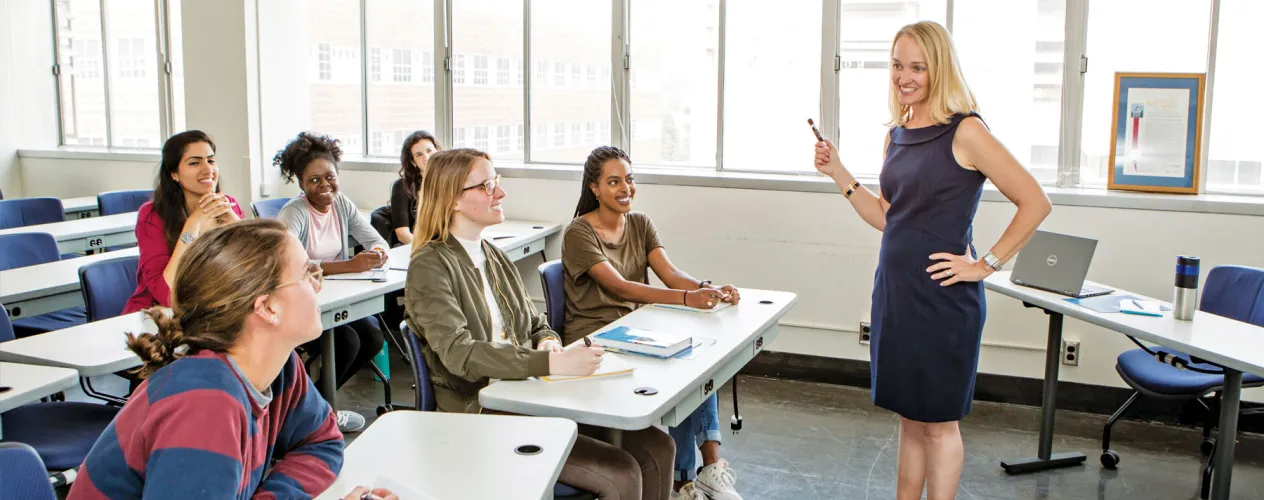Difference Maker
A passion for advocacy led Julie Elginer to pursue a Fielding School doctorate. Now, as a faculty member, she gives students the tools they need to influence women’s health policy.

“Knowing how to advocate will enable students to ensure that individuals whose voices most need to be heard are represented.”
— Dr. Julie Elginer
JULIE ELGINER (DrPH ’11) was in the midst of a successful career as a marketing manager for a large biotechnology company when she realized she wanted to take her professional life in a different direction. At the time she was also involved in public policy work with the Junior League of Los Angeles, a women’s volunteer organization. Elginer discovered she had a knack for policy while leading the organization’s state public affairs committee, through which she helped raise awareness about issues related to health, violence prevention and family support.
To pursue her passion for policy, Elginer came to the Fielding School, where she earned a DrPH in Health Policy and Management. While a student, she continued her advocacy work and fulfilled what she says is her proudest legislative achievement: leading the effort to pass a resolution that established May as Perinatal Depression Awareness Month in California. Elginer was inspired by the experience to focus her dissertation on maternal mental health advocacy both in California and throughout the United States.
“I got my doctorate because in order to have a seat at the table, to effect meaningful change, I needed to have credibility,” Elginer says.
Now a lecturer in FSPH’s departments of community health sciences and health policy and management, Elginer is known for her skills-based approach to instruction and has received awards for her teaching. Elginer’s popular course on reproductive health advocacy, currently in its seventh year, teaches students how to create comprehensive advocacy plans including identifying legislation related to women’s health, analyzing the merits of the bills and taking a position on them. Elginer imparts skills students can immediately put to use, including how to contact a legislator’s office, discuss a bill with legislative staff members and write a letter in support of a bill.
Many students pursue their advocacy work long after the course ends. Chloe Winders-Singer (MPH ’17), a regional maternal and child health consultant for Kaiser Permanente, has continued to track legislative action related to a bill she analyzed as part of an assignment last year. “It’s one thing to know how to do statistical analysis or a literature review, but speaking about public health issues with people who are creating laws and policies bumps you up to the next level,” she says.
Elginer sees public health students as natural advocates. “We enter this field committed to serving underserved communities and those experiencing health disparities, inequities and injustice,” she says. “Knowing how to advocate will enable students to elevate an issue, secure resources and ensure that individuals whose voices most need to be heard are represented.”